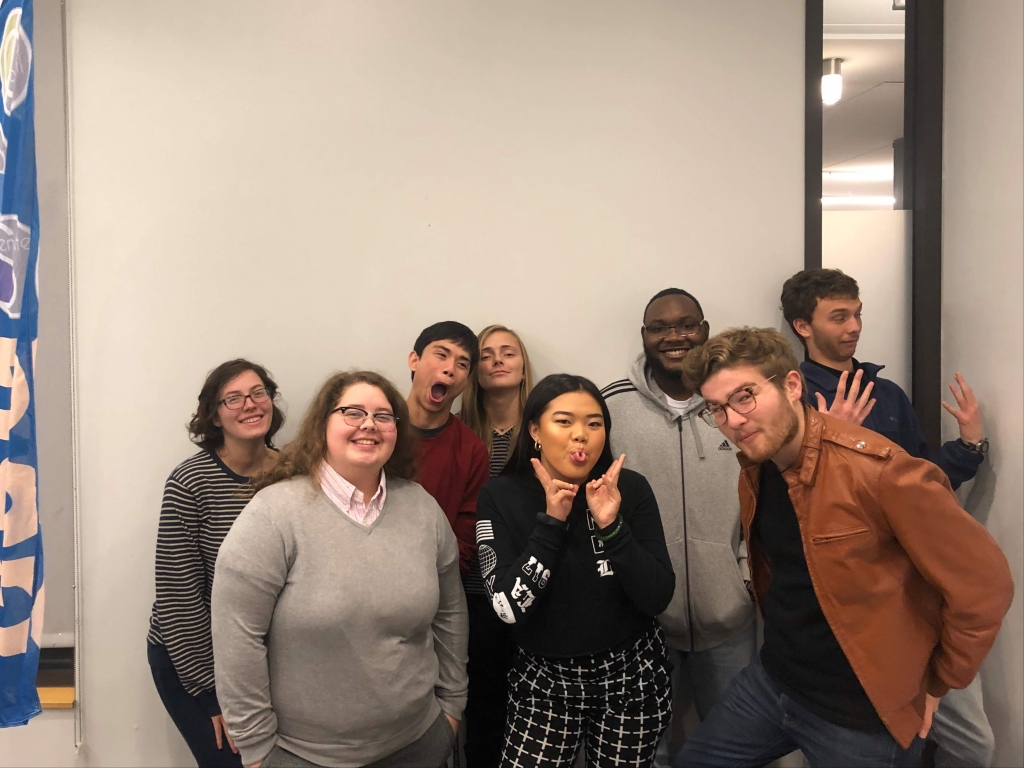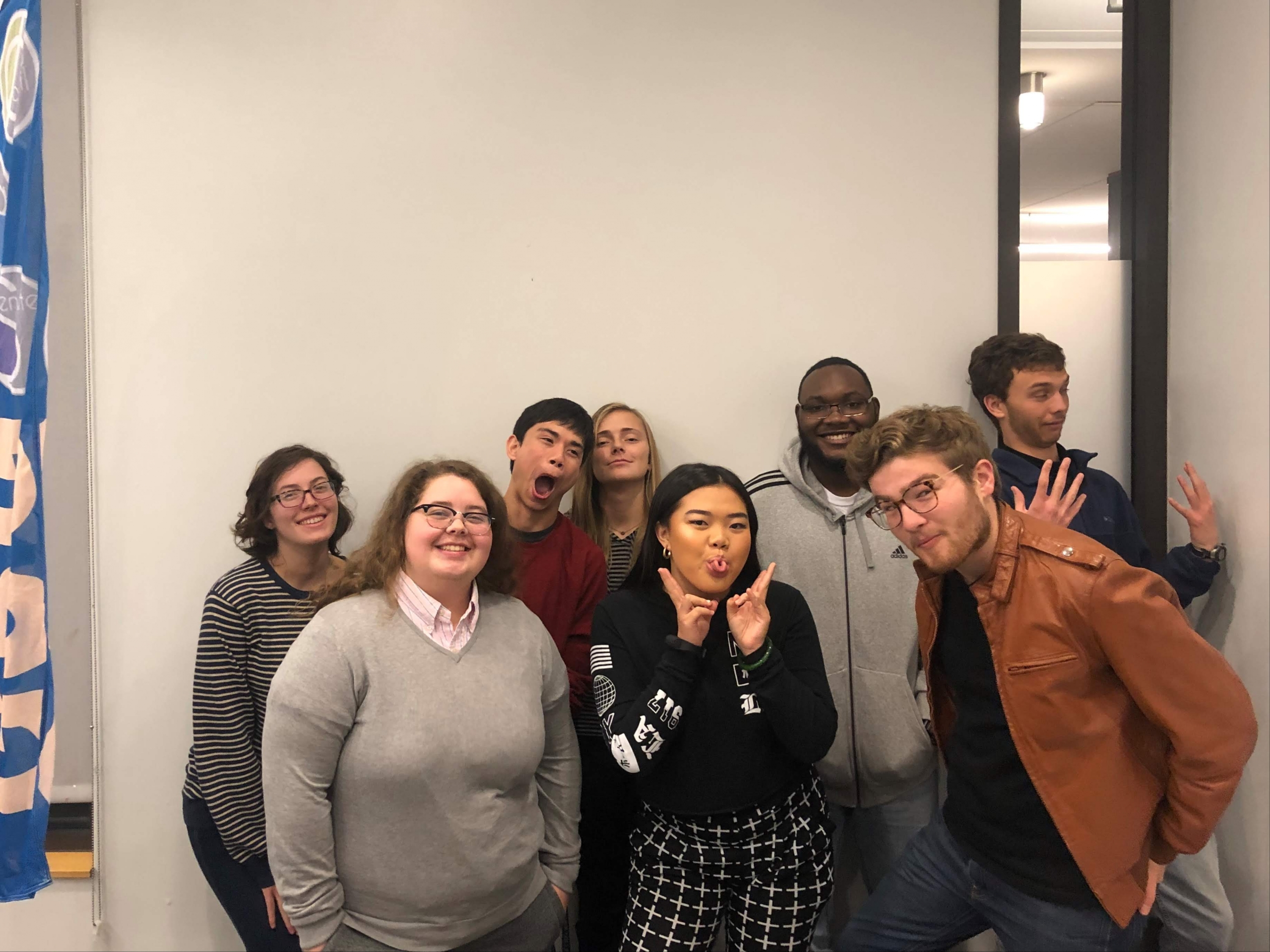
If you’re a politically- or activist-minded first-year student arriving at Goucher, there aren’t very many obvious ways to get engaged. You barely know anybody beyond your immediate group of friends, you’re just starting to know a few professors, and the only two clubs that seem remotely political in nature are Model Senate and Model United Nations. After two months of not knowing anybody but with a thirst to create “change,” I was eager to run for the Goucher Student Government (GSG) Senate when flyers advertising GSG senate elections popped up across campus even though I had only a small grasp of the issues that affected the Goucher student community. I wasn’t the only one running: there were seven other first-years running for Senate besides me, including current GSG Co-Presidents Yuchen Ding ’22 and Derrick Burnette ’22 and current senator Alistair Watson ’22.
However, by the time elections came around my sophomore year next year only Watson chose to run for re-election as Burnette and Ding stepped up to run for Co-President. I myself chose not to run for re-election, instead devoting my full-time energy into writing for The Q. This is emblematic of a further trend where upperclassmen increasingly choose not to run, instead pushing their activism and political engagement through alternative channels. As a result, GSG remains overwhelmingly dominated by first-years and new sophomore senators while juniors and seniors are typically underrepresented.
You can chalk up the lack of juniors and seniors down to a couple different plausible answers: they have more work and studying to do, most choose this timeframe to study abroad, and people naturally change their interests as time moves on. These answers are, in whole or in part, correct. However, there is another reason which I’m going to explore: the GSG Senate is simply an ineffective and redundant institution for governance.
While the idea that GSG is broken isn’t new – sometimes it feels like an open secret – the question “why is GSG ineffective?” has a few different, related answers. To explore this, I will break it down into two related but distinct categories: one-part identity and one-part structure.
The first part, concerning identity, was succinctly summarized to me by a professor the first semester of my sophomore year: “GSG has never figured out what it means or what it does.” The GSG Senate Constitution preamble states that it serves as a “…coordinator of student activities and an advocate for student interests, promoting an open and equitable dialogue among the student body, alumnae/i, faculty, staff, administration, and trustees.” Elsewhere on the GSG website a blurb mentions:
Goucher Student Government works to bring students into conversation with administrative decisions, and to build long term relationships with administrators in order to ensure students’ role in the decision-making process.
In other words, the responsibility for a GSG Senator is to advocate for student interests when speaking to faculty, administration, and staff. However, the vagueness of this role is presented as an opportunity – “you can make this role into whatever you want!!” as a senator once told me when I was first elected – but in reality this creates a situation where most senators have little idea of their responsibilities or how to “advocate for student interests” and promote “an open and equitable dialogue.” This is especially problematic for first-year senators who are thrown into GSG who must simultaneously “make” their job as a senator and learn the community they are serving. After one year as a GSG senator the only concrete power I found that GSG has (which it uses repeatedly) is their campus-wide email which Senate can use to “stand in solidarity” with clubs on certain issues such as the #GoucherBlackOut or to ask for students to serve on administration committees.
This brings me to my next point: structure. Many of the issues I faced as a senator revolved around the structure. GSG runs according to a constitution which mandates bi-monthly meetings during which you can pass resolutions by a ¾ majority vote so long as you have a quorum (a minimum attendance). However, throughout my time as a senator we could never pass resolutions because there was never quorum and we could never impeach absentee senators for the same reason. It was a bureaucratic nightmare. The other issue we faced is that resolutions passed by GSG have no method of enforcement. They are simply symbolic. All of this is even before we talk about senate committees, an ongoing fight between senators over whether they’re necessary (they’re not) which is held every year and usually ends with yelling and hurt feelings. True to form, the debate was held again this past Tuesday during the first-of-the-year GSG session and once again there was bickering.
Now if you’ve made it to the end, you might be asking yourself, “Well Jibril, why don’t you run? You know all the issues. You can fix it.” My response is I’m simply not interested nor do I have the mental bandwidth to oversee a wholesale constitutional rewrite. Instead, I’m writing this opinion piece as both a way of providing information to any future students who currently are contemplating a senate run and as a call to action. Senate is dysfunctional but the problems are not unresolvable. In the meantime there are other organizations who are taking action such as Goucher Consent Coalition (GCC), Goucher Black Student Union (GBSU), and Goucher Student Union who have all organized and taken direct action on behalf of students to raise awareness and address issues of campus rape culture, ongoing anti-Black racism and lack of representation, GardaWorld, and cuts to faculty and staff. And of course, every day students do their own self-advocacy on an individual basis, reaching out to faculty, staff, and administration directly – a relationship that would not be possible at other institutions and should not be taken for granted. With this network of successful individuals and advocacy organizations at Goucher finding their role and voices it is only right we begin to question why GSG senate has seemingly never figured out its own role.


Nice article, Jibril